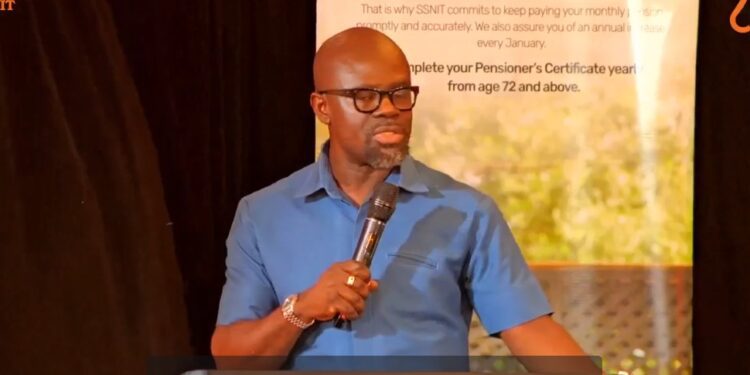Professor Ernest Kofi Abotsi, Dean of the UPSA Law School, has urged the Social Security and National Insurance Trust (SSNIT) to strategically prepare for an anticipated demographic shift in the management of the scheme.
According to Professor Abotsi, this demographic transformation represents a major issue that SSNIT must be equipped to handle, warning that inadequate preparation could lead to significant inconveniences.
He specifically highlighted contributors born in the 2000s and 2010s as presenting a particular challenge, describing them as a generation that “doesn’t take no for an answer.”
The Dean cautioned that the first organized demonstration against SSNIT may well originate from this cohort, stating that “those guys… don’t follow rules, they don’t follow boundaries.” He drew a parallel to recent events in traditionally stable nations, noting, “I am sure we’ve seen what is happening in Tanzania… Ghana has been more unstable than Tanzania.”
Professor Abotsi’s insights were part of a presentation titled “Future of Social Security in Ghana and Service Delivery in the AI Era,” delivered on November 5, 2025 during the SSNITPossium.
He stressed that it is imperative for SSNIT to become increasingly conscious of this demographic group. While this cohort may not retire for another 20 to 30 years, they are the ones who “would ask questions” and “will not have the patience to retire.”
This category of contributors, he emphasised, will demand transparency regarding the utilization of their contributions.
Furthermore, he warned that this group is most likely to initiate legal action against SSNIT and the government, potentially questioning the constitutionality of mandatory SSNIT contributions.
Professor Abotsi stressed by stating the necessity for SSNIT to be acutely aware and mindful of this new demographic. He noted that the current generation may not have the patience of their predecessors, and that the legal system may support them, given the constitutional right to autonomy.
He finished with a strong recommendation: “SSNIT needs to come alive to the risk that it faces especially as we go into the middle of the 21st Century.”
Former General Manager, Benefits, Rosemary Amerley Sackey, on her part called on SSNIT to continue building livelihoods, ensuring pension security, and investing in the country’s sustainable economic growth through housing, infrastructure and capital markets.
She called for responsible investment, digital transformation, and institutional knowledge preservation as pillars for future resilience.
“Ladies and gentlemen, if there is one lasting lesson in our 60-year journey, it is that sustainability is rooted in trust. Trust built through fairness, responsiveness and consistent service.
“It is the trust earned daily by staff who serve with empathy, professionalism and pride. Technology may enhance our operations, but transparency and accountability sustains confidence.”
She added “As we look to the future, our task is to sustain and expand this legacy in a rapidly changing world of work — one characterised by digital platforms, informal entrepreneurship and shifting demographics. SSNIT must continue to innovate, extend coverage to self-employed workers and nurture a culture of voluntary compliance built on trust, relevance and value.”
By: Rainbowradioonline.com/Ghana















